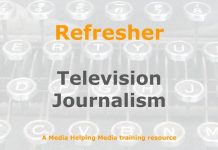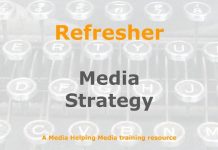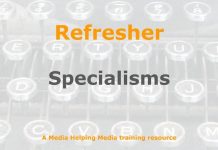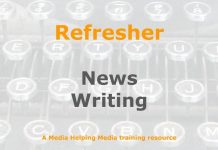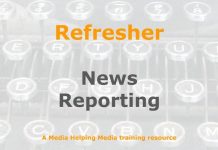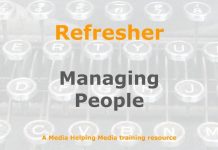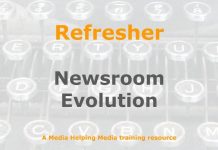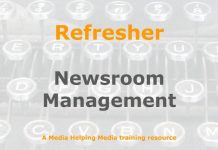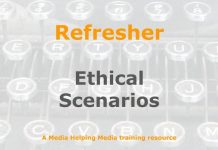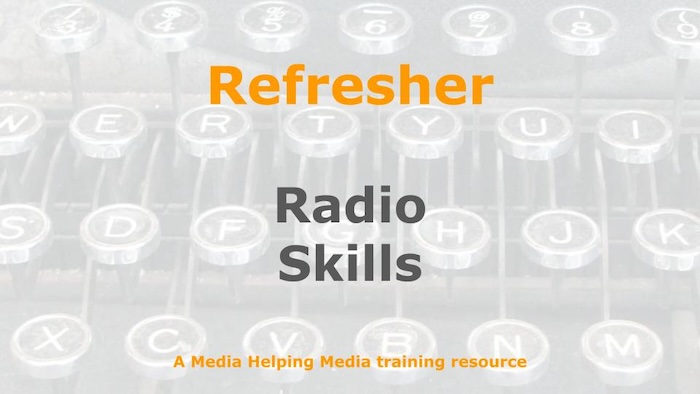 This day-long intensive training course offers participants a practical grounding in all industry-relevant skills, ensuring they leave with a comprehensive understanding of the broadcast workflow.
This day-long intensive training course offers participants a practical grounding in all industry-relevant skills, ensuring they leave with a comprehensive understanding of the broadcast workflow.
Over four focused sessions, you’ll first learn the essential principles of writing for the ear and structuring a news bulletin before moving onto the skills needed to create compelling field content, including advanced techniques for interviewing and constructing complex news packages.
The afternoon then shifts focus to the technical and strategic elements, providing practical experience in audio editing and professional sound production, culminating in an exploration of long-form storytelling through documentaries and the principles of community radio planning and engagement.
The material is a compressed version of our six-week ‘Radio journalism skills’ module which is free to download and adapt for local needs.
We recommend trainers circulate the material below to participants in advance of the course so that they can prepare before the event.
Session 1: The fundamentals of radio news (09:00 – 10:45)
- Focus: Writing for the ear, understanding news values, and structuring a basic news bulletin.
- The essential principles of writing for clarity, brevity, and accuracy in an audio format.
- How to distil complex information into concise scripts using active language and logical story order.
- News values, selection, and prioritisation of stories for a news programme.
- Utilising signposting and pacing for the listener.
- Group activities:
- News bulletin writing exercise: Participants are provided with raw press releases and wire copy. They must write a concise, three-minute news bulletin script suitable for broadcast, focusing solely on writing for audio.
- Critique and feedback: Group review of selected scripts, focusing on word economy and clarity.
- Recommended resources:
Break 10:45 – 11:00
Session 2: Reporting and advanced interviewing techniques (11:00 – 12:45)
- Focus: Constructing complete radio news packages, effective audio gathering, and advanced interviewing skills.
- Planning a news package: Storyboarding, scripting, and integrating audio elements (actuality, interviews, narration).
- Techniques for conducting interviews: Building rapport, understanding interviewee motivations, and eliciting strong, usable responses.
- Narrative structure and maintaining listener engagement in reported packages.
- Group activities:
- Mock interview practice: Participants practise conducting ‘hostile’ and ‘soft’ interviews in pairs, focusing on microphone technique and questioning strategies.
- Package planning simulation: Groups outline the structure, required sound clips, and script segments for a complete five-minute news package based on a current affairs topic.
- Recommended resources:
Lunch 12:45 – 13:45
Session 3: Production, editing, and technical standards (13:45 – 15:30)
- Focus: Digital audio editing, sound quality control, and developing a distinctive station sound.
- Introduction to basic and advanced digital audio editing software and techniques (cutting, fading, mixing, balancing sound levels).
- Refining scripts and bulletins for timing, clarity, and impact, ensuring professional broadcast standards.
- Creating a distinctive station sound through branding, music, and production values (idents and sonic identity).
- Group activities:
- Audio editing challenge: Participants are given raw interview audio and actuality. They must edit the clips, remove stumbles, clean up sound, and assemble them into a professionally mixed short segment.
- Station branding proposal: Groups develop a brief audio identity concept for a new radio station, including suggested music stings and sound effects.
- Recommended resources:
Break 15:30 – 15:45
Session 4: Long-form content and operational strategy (15:45 – 17:30)
- Focus: The creation of documentaries and current affairs programmes, ethical reporting, and community radio operations.
- In-depth research and developing a documentary proposal; structuring a long-form narrative.
- Ethical considerations in longer-form, sensitive, and investigative reporting.
- Principles of community radio: Planning, set-up, station management, regulatory requirements, and creating a running order.
- Group activities:
- Documentary pitch: Individuals develop and present a short concept for a radio documentary, outlining the narrative arc, research needs, and ethical challenges.
- Community radio operational plan: Groups devise a basic running order and project plan for a sample community radio station serving a specific local demographic.
- Recommended resources:
Course summary and discussion
An open discussion session with participants to assess what they have learnt.
Related material
